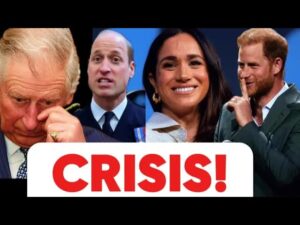In the realm of modern monarchy, few figures have stirred as much debate as King Charles.
While he began his reign with soaring expectations and a vision of unity, the reality has been far less inspiring.
As we delve into the complexities of his leadership, it becomes evident that the promises made by Charles have largely remained unfulfilled, leaving many to question his effectiveness as a ruler.
When Charles first ascended to the throne, there was a palpable sense of hope.
Many envisioned a new chapter characterized by compassion, empathy, and a cohesive kingdom.
However, as time progressed, it became clear that this vision was more mirage than reality.
Instead of fostering a spirit of togetherness, his reign has been marred by political missteps and a failure to connect with the very people he vowed to serve.
The early days of Charles’ rule were filled with grand proclamations of a united kingdom.
Yet, these declarations soon faded into the background, overshadowed by a series of actions that seemed to contradict his initial promises.
The optimism that once surrounded his ascension has given way to skepticism, as citizens grapple with the disheartening reality of his leadership.
One of the most striking examples of this disconnect is the treatment of Prince Harry and Meghan Markle.
Once beloved members of the royal family, their decision to step back from royal duties in search of privacy was met with a cold response from Charles.
Rather than offering support, he appeared to prioritize protocol over compassion, leaving the couple feeling isolated and vulnerable.
This lack of empathy was further highlighted when Charles stripped Harry and Meghan of their security, an act perceived by many as punitive rather than protective.
Such decisions not only alienated the couple but also cast a shadow on the monarchy’s image, which should ideally symbolize unity and understanding.
Instead, it showcased a deep rift between the royal family and the public.
Charles’ leadership has also been marked by a series of public blunders that have exacerbated existing divides.
His stance on climate change, while commendable in theory, has drawn criticism due to his own environmentally unfriendly practices, such as frequent private jet travel.
This contradiction has left many questioning his commitment to the cause he champions.
Moreover, his dismissive comments about modern architecture have alienated not just architects but also those who appreciate innovation.
By clinging to outdated traditions, Charles risks becoming increasingly out of touch with a society that values progress and change.
His reluctance to adapt has only widened the gap between him and the public he represents.
The personal dynamics within the royal family further illustrate Charles’ shortcomings as a leader.
Reports suggest a strained relationship with his sons, particularly Harry, whose departure from royal life was a desperate bid for autonomy after years of feeling sidelined.
Charles’ reaction—cutting off financial support and withdrawing security—paints a troubling picture of a father more concerned with image than with family.
Similarly, his relationship with Prince William appears fraught with tension, as mutual respect seems to be lacking.
This disconnect not only affects their personal bond but also reflects poorly on the monarchy as a whole, casting doubts on its ability to present a united front in the face of public scrutiny.
As Charles continues to navigate the complexities of kingship, his adherence to antiquated protocols and traditions stands out as a significant barrier to progress.
His reluctance to modernize has fueled resentment among the British public, who increasingly seek a monarchy that resonates with contemporary values and social norms.
The implications of Charles’ leadership failures extend beyond the palace walls.
They ripple through the fabric of British society, leaving many feeling disillusioned and disconnected from a monarchy that once represented stability and tradition.
The once-revered institution now finds itself grappling with questions of relevance and purpose in a rapidly changing world.
In examining the legacy of King Charles, it becomes clear that his reign has been characterized by unfulfilled promises and a lack of effective leadership.
The challenges he faces are not merely personal; they reflect broader issues within the monarchy itself.
As the British public looks on, the need for empathy, understanding, and genuine connection has never been more pressing.
As we reflect on the complexities of King Charles’ reign, it serves as a reminder of the heavy responsibilities that accompany the crown.
The lessons learned from his leadership failures underscore the importance of compassion and adaptability in navigating the intricate landscape of modern monarchy.
